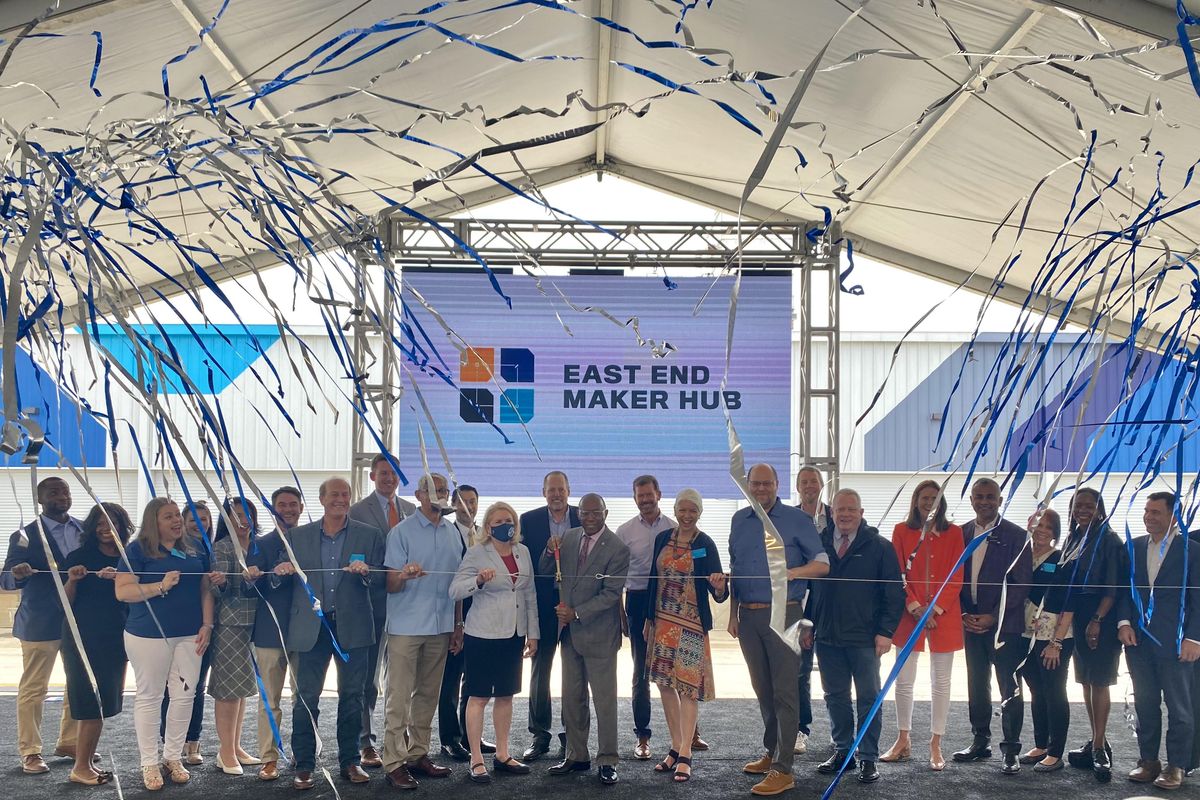Midtown Houston's innovation hub has unveiled its latest building feature and named its operation partner for the space.
The Ion opened its The Ion Prototyping Lab with the announcement that Houston nonprofit TXRX Labs will be the operator of the lab. The IPL’s 6,500 square-foot space will include access to tools — such as laser cutters, CNC mills and lathes, electronics assembly equipment, and 3D printers — as well as programming, training, and support.
“The Houston community’s growing need for these services has led to our growth from a small community organization to a partnership with Houston’s leading center for innovation, The Ion,” says Roland von Kurnatowski, president of TXRX Labs, in a news release. “With our presence at The Ion and in its Prototyping Lab, we are able to join together innovative ideas and technology to create a social and collaborative space to support tomorrow’s entrepreneurs' needs and challenges.”
Founded in 2008 and based in the East End Maker Hub, TXRX Labs provides community-focused engineering and fabrication services and job training programs. The nonprofit's goal is to make Houston a major 21st-century manufacturing hub.
The new space within the 266,000 square-foot innovation hub was designed by Gensler and is "the largest open corporate and startup-aligned prototyping space in Houston," according to the release.
“As part of Gensler’s contributions to the development of The Ion, we strategically designed the Prototyping Lab to function as a dedicated space for innovators and entrepreneurs to collaborate,” says Vincent Flickinger, senior associate and design director of Gensler Houston. “The Ion Prototyping Lab is equipped with tools for prototyping robotics and other energy focused innovations and cultivates an entirely new way of doing business in a reimagined, historic building and with one of Houston’s fastest-growing innovators, TXRX. We look forward to introducing the IPL’s offerings to the public.”
The IPL is the latest opening for The Ion. Last summer, the hub, which is opened and managed by Rice Management Company, opened its coworking space. The next openings to expect are an investor studio and several restaurant concepts, including Late August, The Lymbar, and more. Common Bond On-The-Go, located on the main floor of the Ion, opened this week too.
“With its close proximity to Houston’s Central Business District and The Texas Medical Center, The Ion is thrilled to provide the Houston tech community the Prototyping Lab operated by TXRX as an essential resource for businesses,” says Jan E. Odegard, executive director of The Ion, in the release. “The Ion serves as a driver and convener of activity, while TXRX's successful model of hands-on training and technological innovation is being leveraged to jumpstart the activity of entrepreneurs, corporations, and researchers. You think it, we make it.”
Members will have daily access to the IPL from 9 am to 5 pm. The cost of the membership has not been announced, but IPL will offer grant opportunities, per the release. All members must first complete a safety and skills training course.

 The EEMH has officially celebrated its grand opening. Photo by Natalie Harms
The EEMH has officially celebrated its grand opening. Photo by Natalie Harms



